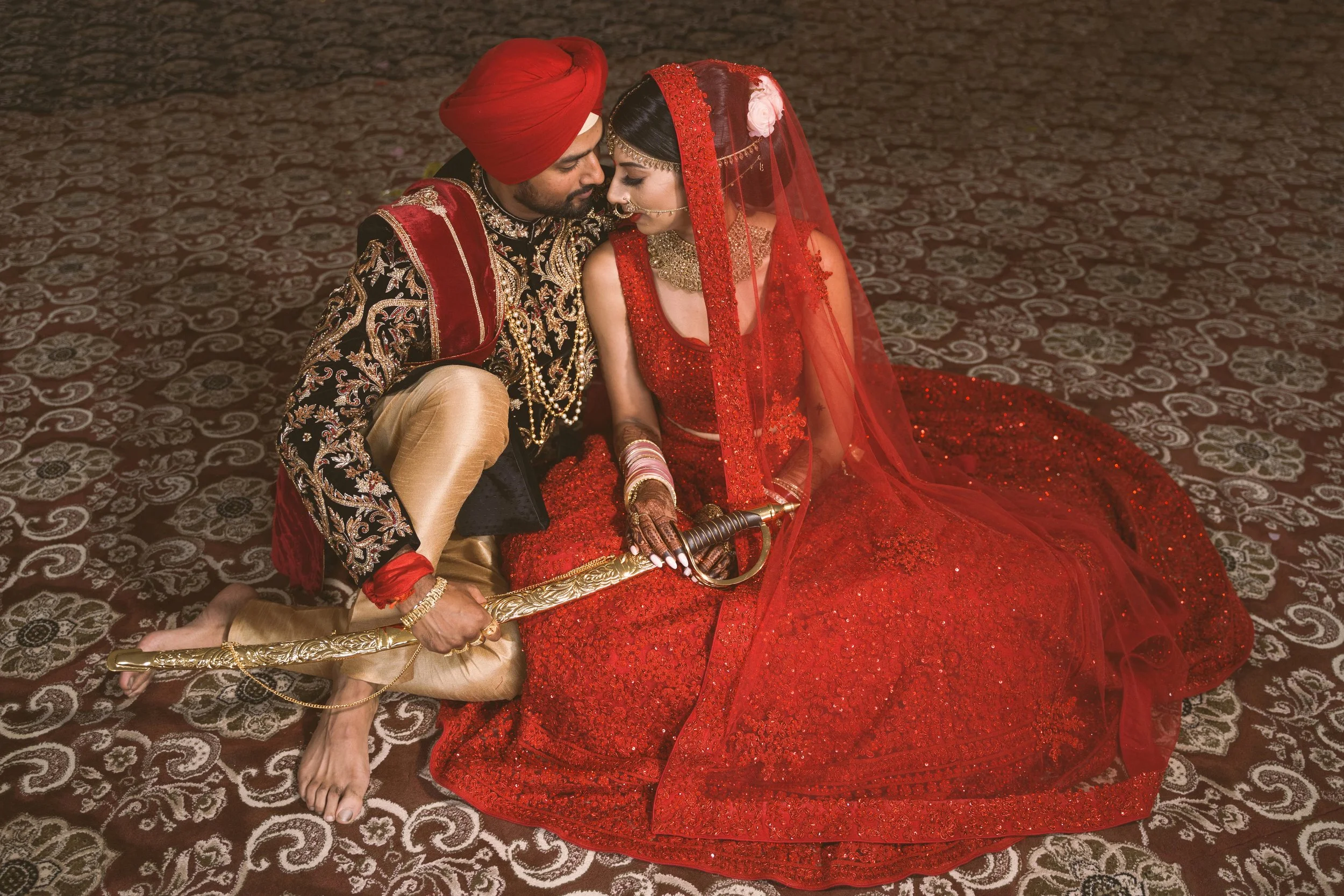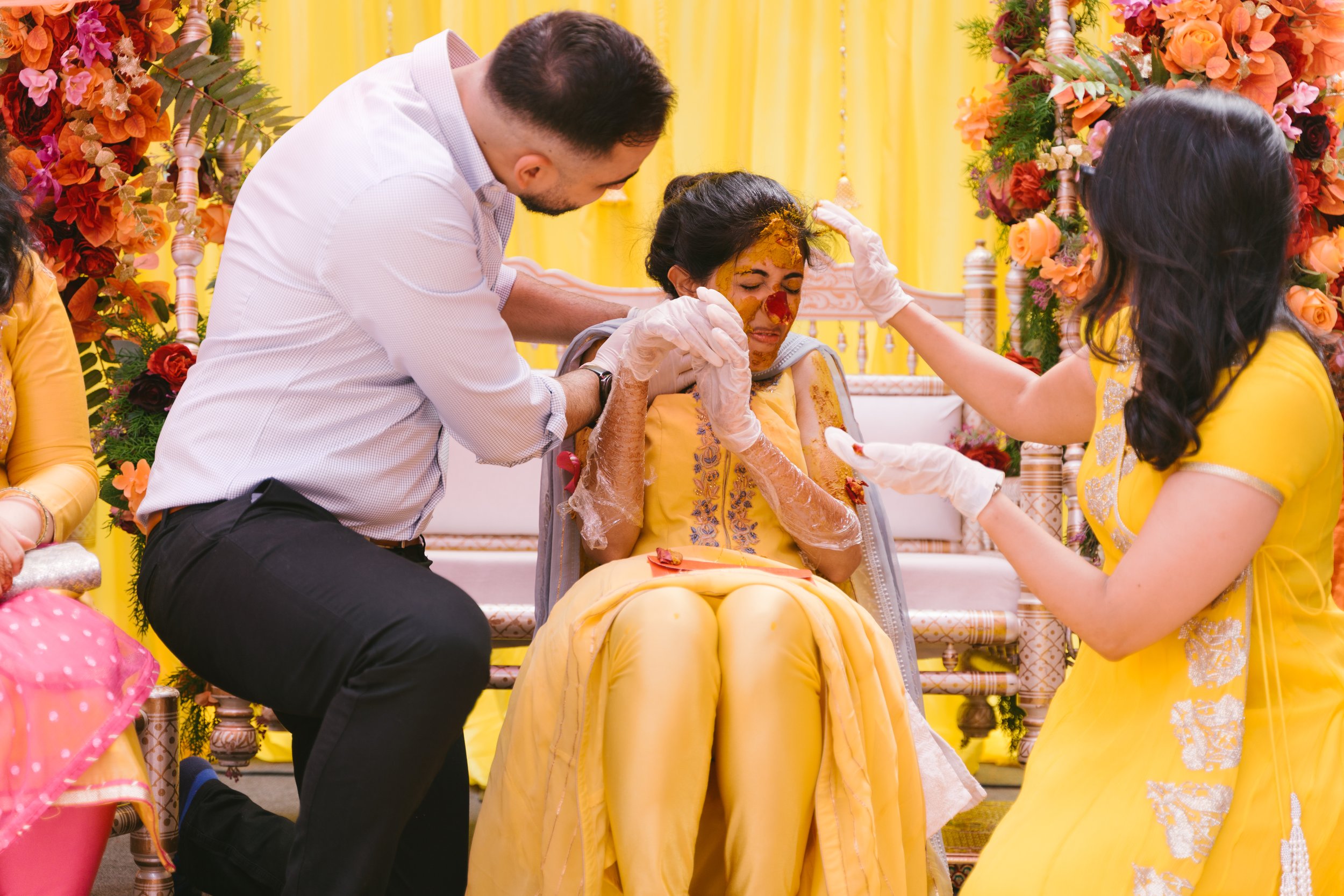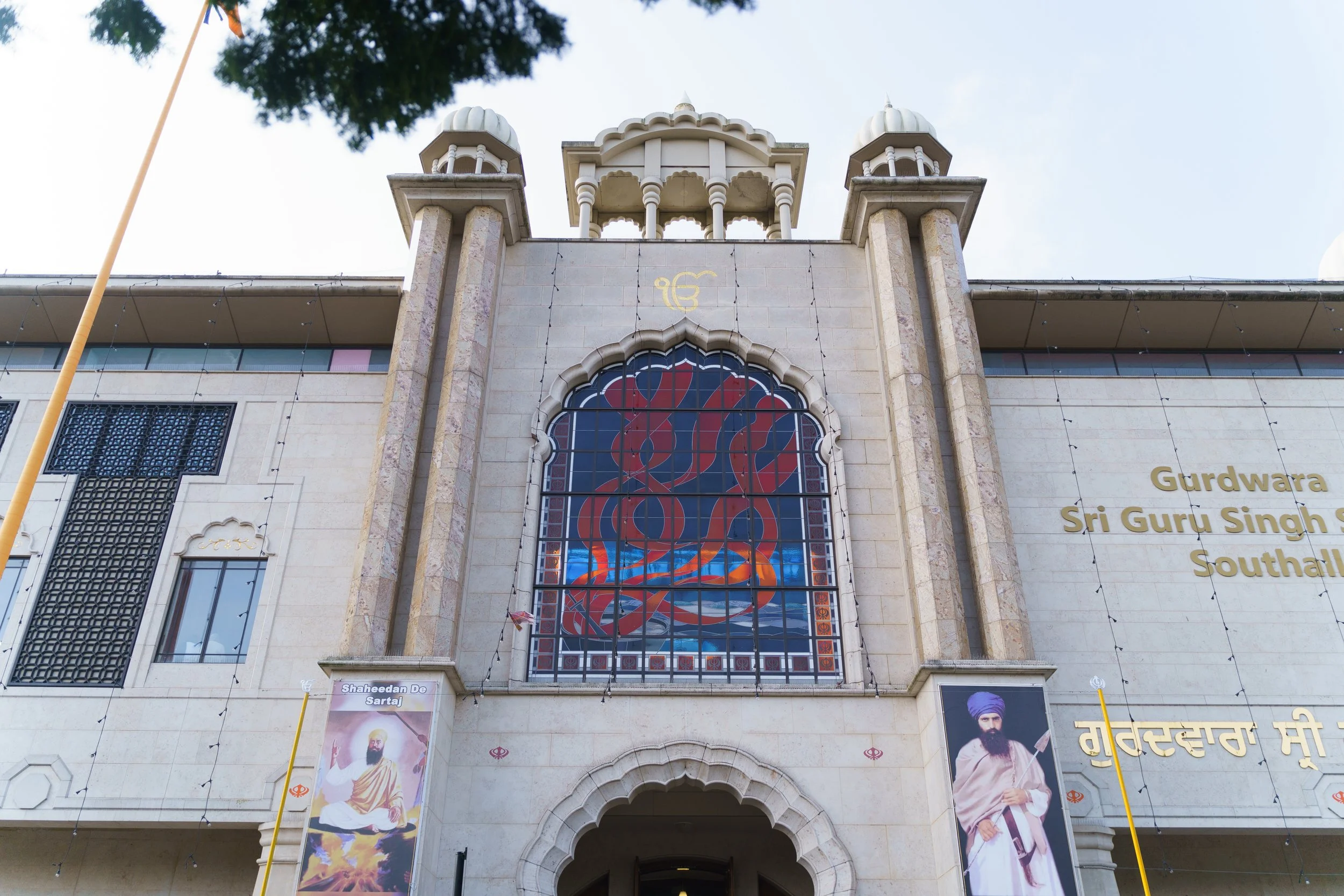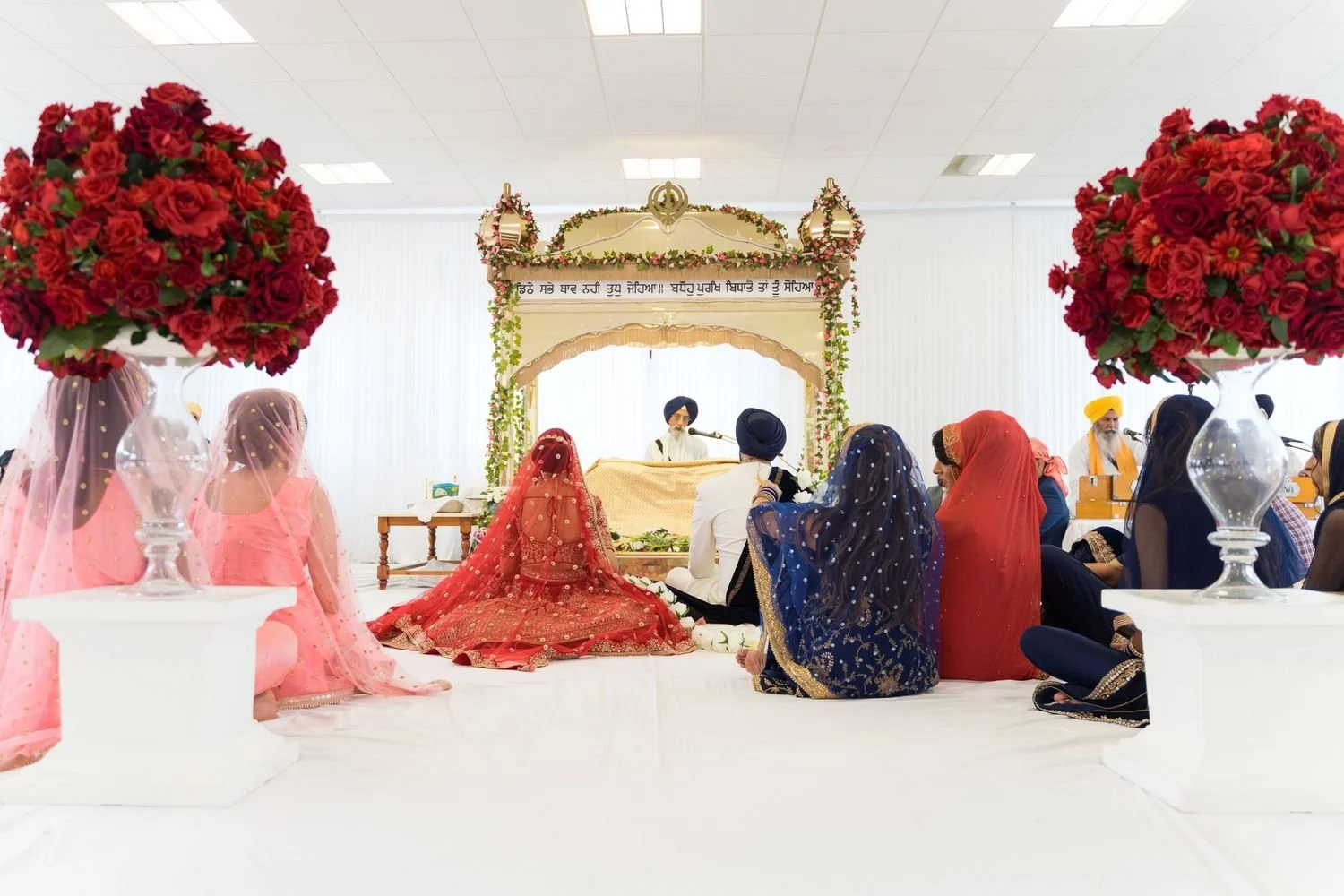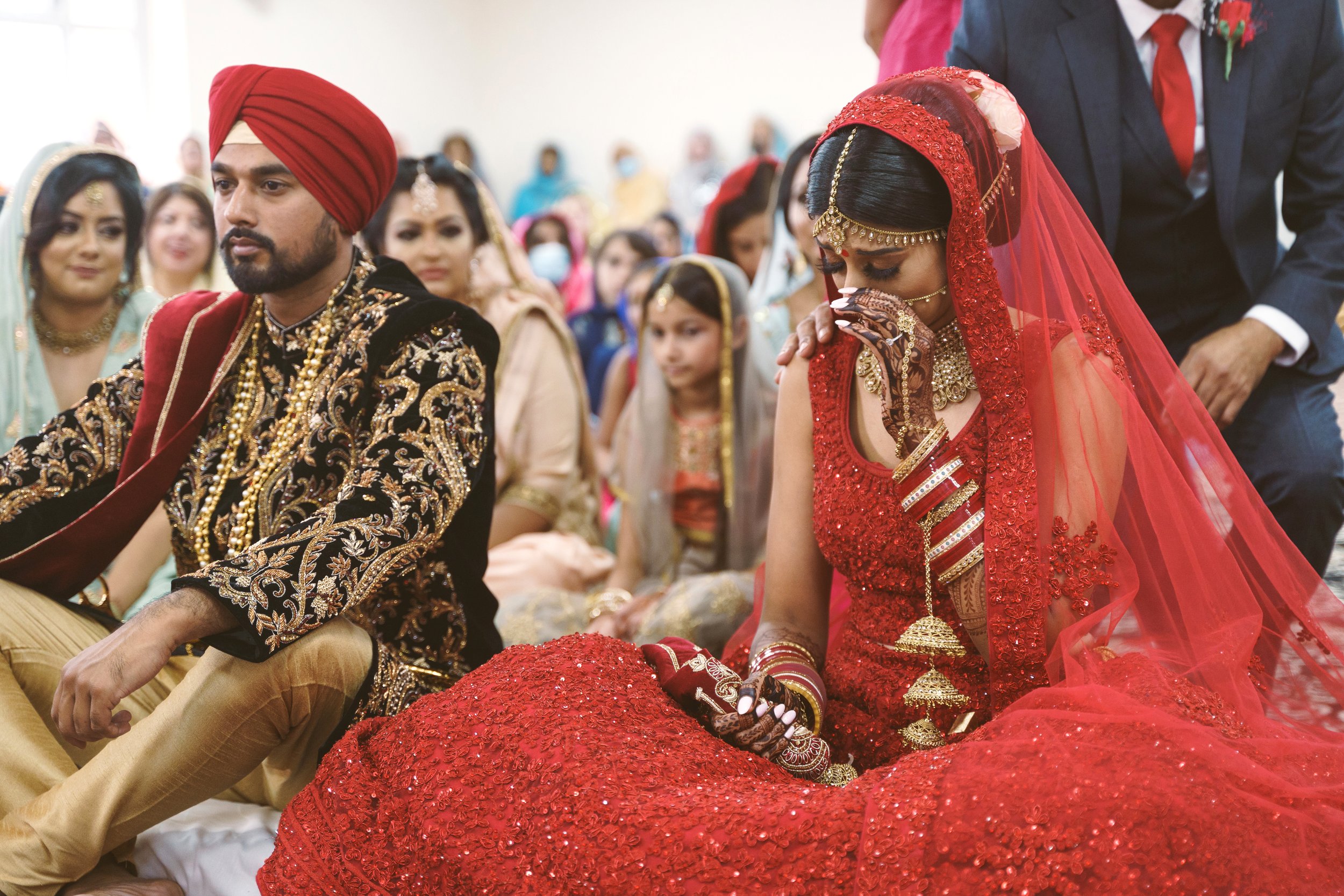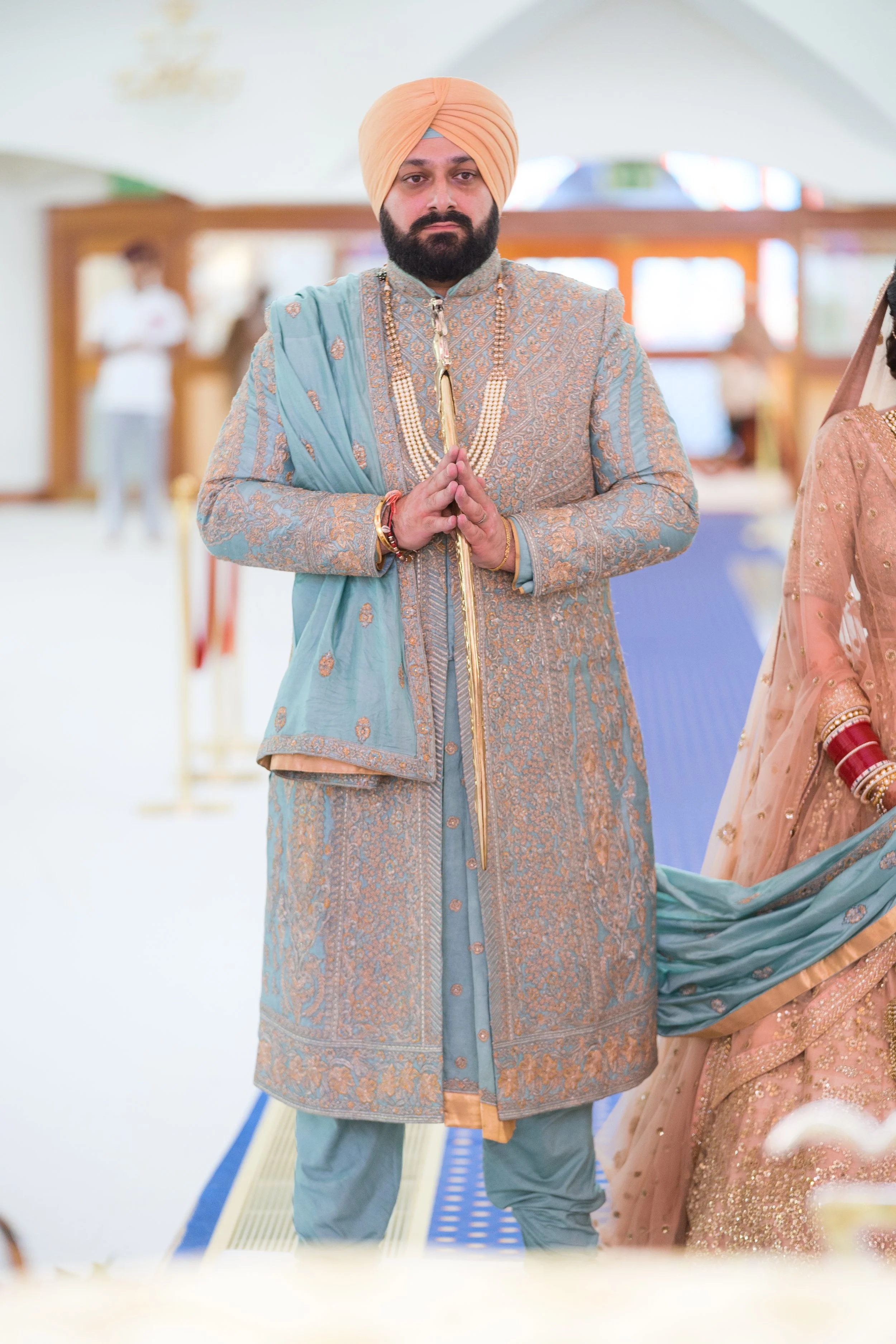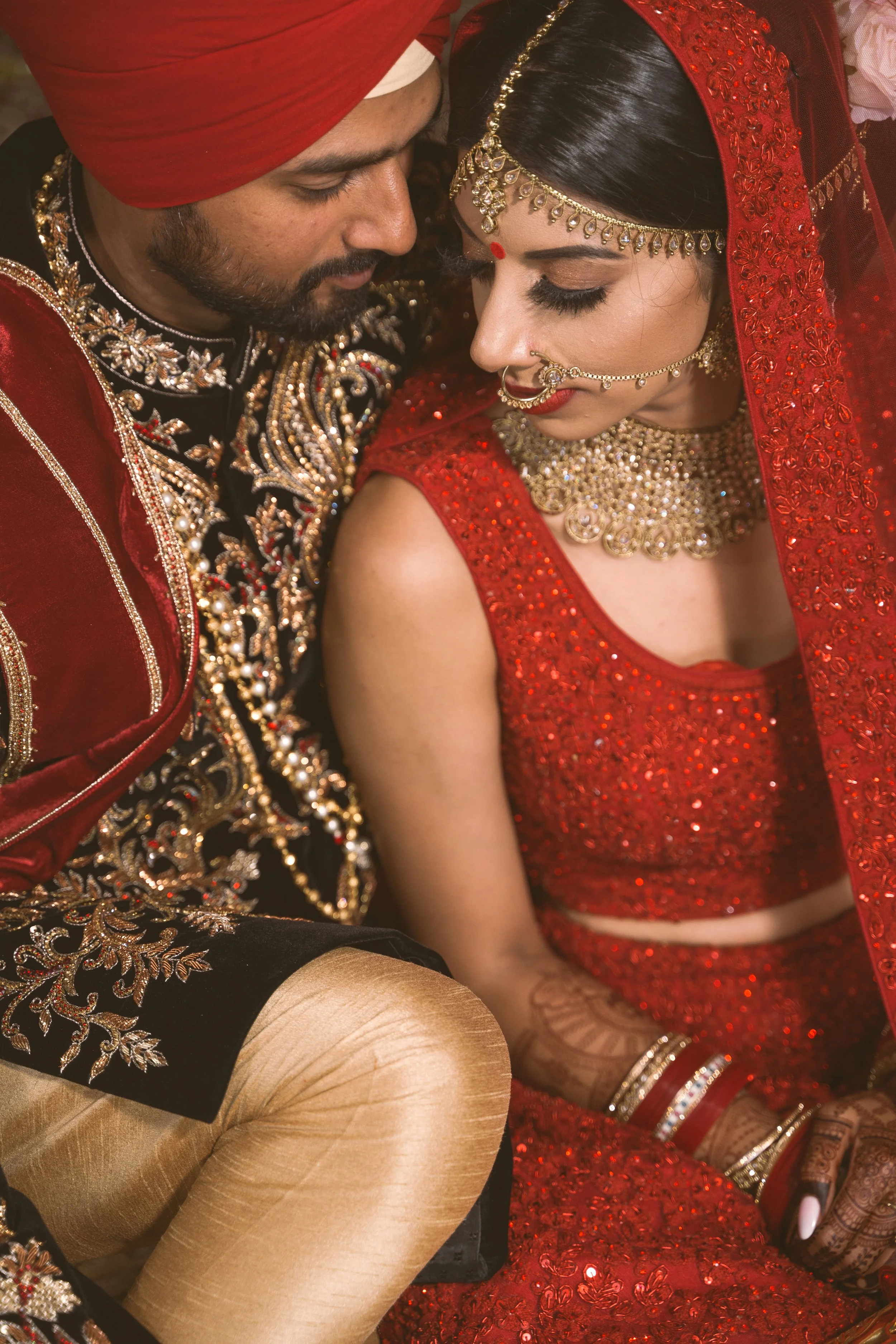The Rituals of a Sikh Wedding CeremonY
Punjabi Wedding Traditions
In India, the Sikh culture is embraced by most Punjabis not only in their daily lives but also in many major life events, such as weddings. The extravagant Sikh culture and age-old Punjabi traditions make the Anand Karaj, the religious Sikh wedding ceremony captivating through the addition of various colourful and vibrant songs, dances, and prayers.
The Anand Karaj, Sikh Wedding ceremony is a celebration that honours both age-old traditions and personal choice. Many aspects of the wedding ceremony carry out different traditions focused on the personal interactions between close family members, whereas the reception and other cultural events welcome the newly formed bond between the newlyweds.
Oftentimes, Sikh wedding ceremonies may be confused with Hindu or Muslim wedding traditions due to some overlapping cultural. To clear up any further confusion, this article focuses on everything that makes up Sikh wedding ceremonies and their customs.
PRE-WEDDING RITUALS OF SIKH WEDDING CEREMONIES
With the big day right around the corner, the couples need quite a bit of time just to prepare! With so many traditions for them to take part in, the Sikh wedding ceremony starts at least 5 to 10 days even before the main event, without including the six months or a year before generally given to prepare for the entire ordeal.
ROKKA AND THAKA OR PARENTAL ACCEPTANCE
This is the first and most important ceremony of all Punjabi traditions because getting blessings from parents means everything when it comes to Sikh wedding traditions. To give consent, the bride’s father typically pays a visit to the groom along with some members of his family.
To show his full support, he applies a tilak to the groom’s forehead and brings him several presents such as garments, sweets, and a kara or ring. Then on the same day or a few days before the engagement, the groom’s father performs the same ritual on the bride.
KURMAI
This ceremony typically takes place in the groom’s house or the Gurudwara in the presence of close family and friends. The ceremony kicks off with the granthi offering Ardas or a short prayer. The groom offers a ring to the bride while the bride’s family offers him a Kara or a steel bangle and a Kirpan.
Then the groom’s sister wraps a palla or wedding scarf around the groom’s shoulders. The bride’s father places a handful of dried fruits in it and places the kara on his wrist. The ceremony ends when the fathers of both the groom and bride exchange garlands.
CHUNNI CHADANA
In this ceremony, the groom, his relatives, and friends wear an auspicious red attire to present the bride with various gifts. These gifts typically include makeup, jewellery, and a simple chunni for the bride to wear on the wedding day.
After the bride dresses up in her outfit and jewellery, the groom’s mother drapes the simple chunni over the bride’s head. This signifies that the bride is now a part of the groom’s family.
MAIYA OR THE CLEANSING CEREMONY
This ceremony may take place at any time during the five days before the wedding. In this ceremony, both bride and groom apply oil to their hair and turmeric paste on their body. This ceremony is held in their own homes.
The female relatives of both bride and groom hold up each corner of a red cloth hoisted above the bride and groom. Throughout the ceremony, all of the guests and female relatives perform traditional wedding songs.
VATNAA
This is a ceremony quite similar to the Haldi ceremony. This ceremony consists of the married women of the family massaging the bride and groom’s body with a special paste made of turmeric, mustard, and barley.
Throughout the ceremony, the women sing traditional wedding songs to create a happy atmosphere all around.
KARAHI CHADANA
This ceremony happens five days before the big day. The family of the bride and groom cooks up a huge feast on a massive wok.
They serve the feast to all the guests that visit the house during the days leading up to the big day. The food might be either sweet or savoury and they should always serve it from the wok.
MEHENDI AND CHURA
Many hold the Mehendi and Chura ceremonies together. During the Mehendi ceremony, the bride gets both her feet and hands decorated in gorgeous Mehendi designs.
As for the Chura ceremony, the bride’s maternal uncle gives her a set of white and red bangles that must be dipped in milk before presenting them at the ceremony. The bangles or “Kalires” are decorated with golden ornaments.
WEDDING DAY RITUALS: THE AUSPICIOUS BIG DAY
The time has come for both the bride and groom to finally tie the knot. Even if the wedding is only a few hours away, there’s much to do! Even down to the last moment, the ceremonies and rituals the Shikh culture perform are:
BARAAT
After the groom is all dressed up in his gorgeous wedding attire, it’s time for him to head for the wedding venue.
Traditionally, he should travel on the back of a horse on the way to the bride’s house or Gurudwara. The groom’s family and friends follow behind while playing music, dancing, and signing.
MILNI
This Sikh wedding ritual consists of the bride’s family welcoming the groom when he has finally reached the wedding venue. They offer gifts and money to the groom.
ANAND KARAJ
Anand Karaj or the “Blissful Union” is the main event of the entire wedding ceremony and takes place during the daytime at the Gurudwara. Both families enter the Gurudwara to participate in the Kirtan.
The Kirtan is a ritual of singing a collection of religious songs. The Guru Granth Sahib or the holy book of Sikhism is brought out as the Gurudwara priest recites ardas or a set of prayers before the bride and groom.
LAAVAN PHERAS
This ceremony consists of four prayers to seal the marriage. As a symbol of unity, a knot is tied to the bride’s pallu and the groom’s dupatta. While the guru recites the Lavaan, they go around the Guru Granth Sahib.
The groom holds the Kirpan and leads the rounds. After exchanging garlands, the bride and groom are considered married.
KARAH PRASAD
The guests get to taste a delicious ceremonial dessert. The Gurudwara prepares the sweets in a certain way and blesses it or the bride’s family prepares them.
POST-WEDDING RITUALS
The wedding may have ended, but the party is not over yet! Even after the wedding, the Sikh culture holds onto a long of fun and meaningful rituals to make the event special for everyone. Some post-wedding rituals are:
WEDDING RECEPTION
The reception is an event that takes place after the wedding ceremony to celebrate the newlywed’s marriage and their future married life.
Food and drink are there for everyone and various forms of entertainment take place during this ceremony.
DOLI
During this ceremony, the bride bids an emotional farewell to her family. Then she throws a handful of rice towards her mother as she walks away, symbolizing her gratitude towards her family for raising her and repaying them.
Pag Phere
After the wedding, the Pag Phere ceremony is when the couple pays a visit for the first time to the bride’s family. The family welcomes them with various gifts and a lavish feast.
CONCLUSION
The Sikh culture holds both family ties and marriage in high regard and there’s much to know about their wedding ceremonies.
I hope the article has helped you delve a bit deeper into the many rituals and traditions performed during a Sikh Wedding Ceremony. I hope the article has helped you to appreciate their rich culture more than before. Thanks for reading.
SIKH WEDDING PHOTOGRAPHY
We have vast experience in Sikh Wedding Photography and Punjabi wedding traditions. When we photograph a Punjabi wedding, it is important for us to document all of the sacred rituals that take place during this special occasion and family members associated with the couple's happiness such as grandparents or other relatives. We offer high-quality images so you can share your memories forever through our lens!
So if you are looking for a Sikh wedding photographer we cover some of the most prestigious Sikh weddings in the UK at Havelock Road Gurdwara, Aliceway Gurdwara and Gravesend Gurdwara. We do cover other areas such as London, Birmingham & Leicester. Please do get in touch below.

